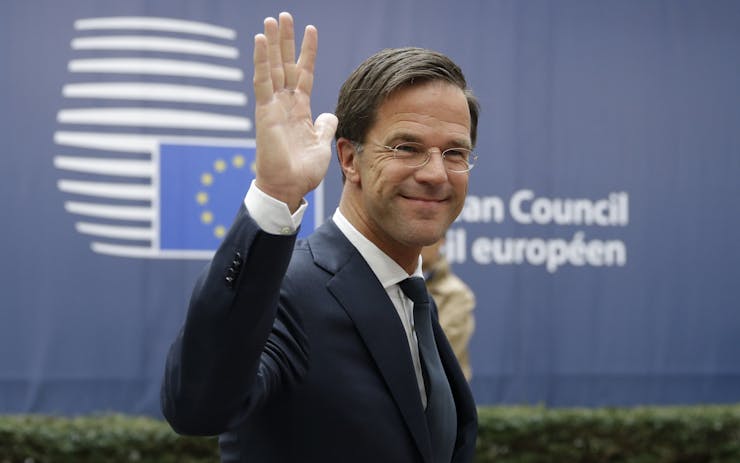Marking another milestone on the road to ending cannabis prohibition in the Netherlands, a sizeable majority of Dutch Prime Minister Mark Rutte’s VVD party have voted to support what they’re calling “smart regulation” of cannabis. Following a vote at a Nov. 19 party converence in Noordwijkerhout, the VVD’s platform going into the general elections next spring will now include the intention “to redesign the entire domain surrounding soft drugs.”
Proponents of cannabis reform had been awaiting the vote eagerly. For more than 20 years, the VVD has supported a repressive cannabis policy, blocking any effort to decriminalize cannabis production. It’s a struck many as hypocritical: The VVD doesn’t want to close the country’s 600 cannabis coffeeshops, but it’s also moved to to keep cultivation and wholesale transactions illegal, keeping the infamous “backdoor paradox” in place.
It’s safe to say Rutte himself is no fan of cannabis, having called the plant “garbage” and “shit.” But his VVD party, which has been ahead in polls for months now, appears to be softening its stance. A full 81.6 percent of the party voted to pass the amendment, which specifically denounces the “strange situation” in the Netherlands that allows consumer-side sales at cannabis coffeeshops but nevertheless outlaws commercial cultivation and wholesale.
The full text reads:
While the sale of cannabis is tolerated at the front door, stock acquisition is now illegal. The VVD wants to end this strange situation and regulate the policy on soft drugs in a smarter way. It’s time to redesign the entire domain surrounding soft drugs. This redevelopment can only take place on a national level. Municipalities should stop experiments with cannabis cultivation as soon as possible.
It’s not exactly quite clear whom or what the last sentence refers to. Although local authorities and mayors have repeatedly called on the national government to allow experiments with regulated cultivation, no such experiments have begun. The only exception might be the city of Amsterdam, which has been tolerant of the first Dutch cannabis social club, The Tree of Life, since it opened there in 2014. But even in that case, the local prosecutor issued a statement declaring the club’s activities illegal.
In a statement about the amendment, its authors wrote that “the legislation in the chain from production to the use of soft drugs, including cannabis, is illogical”
“Another, smarter form of regulation of soft drugs is needed,” they said, “based on both the position of the Netherlands from an international perspective (especially in border regions) and also the manageability in view of public health.”
The shift in stance is symbolic. But is it the long-awaited turning point for the country that pioneered pragmatic cannabis policy and invented coffeeshops?
There are no guarantees in politics, but it certainly seems like it. When current Minister of Justice Ard van der Steur was still in Parliament, he said that if the VVD party congress were to vote in favor of regulation, he too would change course. The question now is to what extent. The general language of the amendment leaves quite a bit room for interpretation. VVD hardliner Fred Teeven, a former underminister of justice who resigned after a scandal involving secret payments to a hash millionaire, claimed that he interprets the amendment as meaning “everything will stay the same.”
“We believe that the question should not be whether there should be rules on soft drugs but of what kind.”
One thing is certain: Cannabis is now firmly on the agenda of the campaigns leading up to the national elections on March 15. And while the recent victories in the eight American states that voted for cannabis reform have hardly made the news here so far, with media focusing entirely on Donald Trump, that could change. The Netherlands could certainly learn a great deal from the different approaches to regulation in various US states.
To help focus the debate on concrete details, several Dutch NGOs have developed an online tool, called the Regulator, which explains the differences between eight different regulatory models. “We believe that the question should not be whether there should be rules on soft drugs,” the tool’s website says, “but of what kind. Other countries around the world are discussing this, so why not the Netherlands?” Three of the regulatory models draw from American states: Colorado, Washington state, and “California 1996.” The first two are adult-use systems, while the third model is based on the law that launched the United States’ first medical marijuana program.





